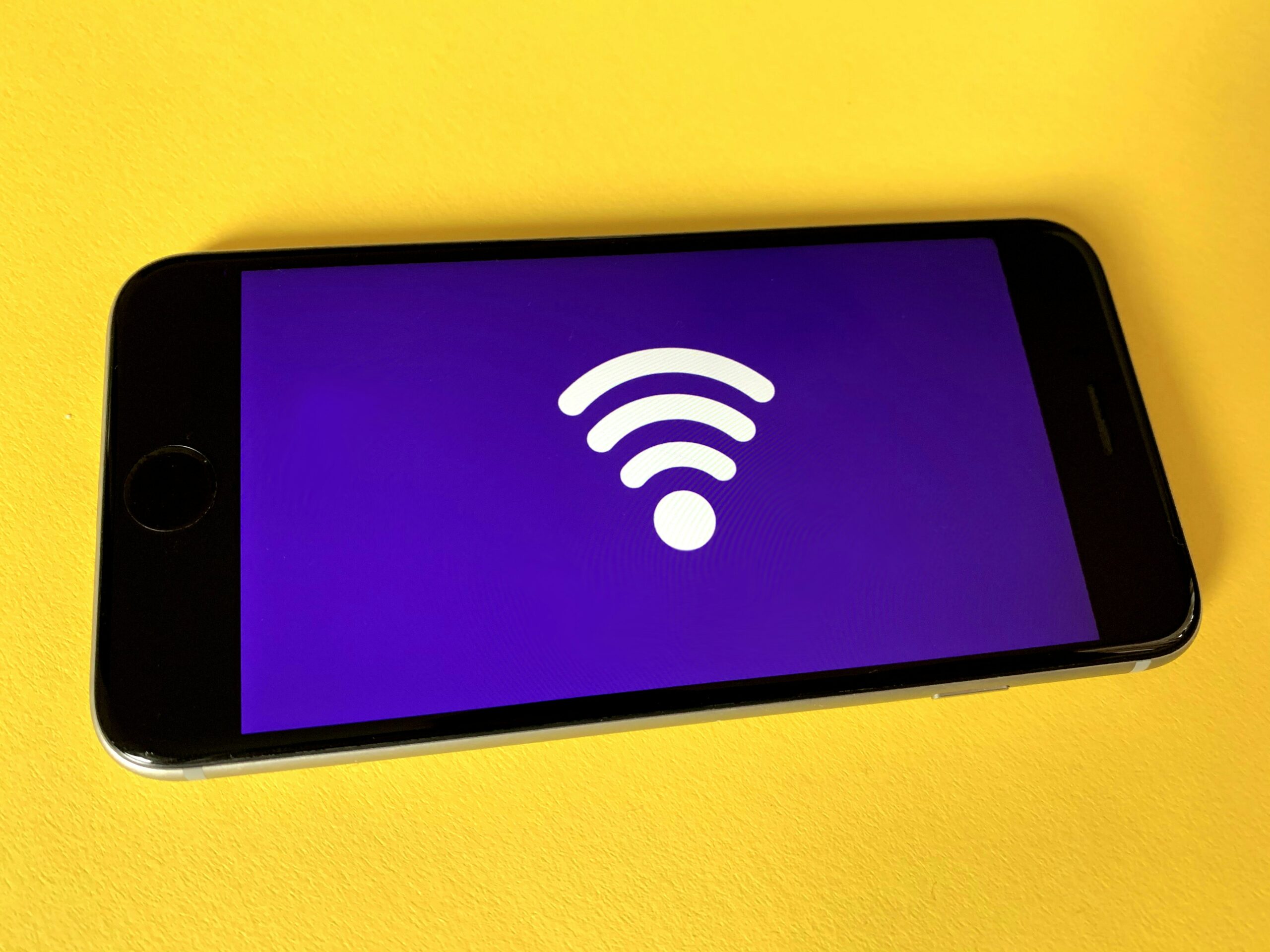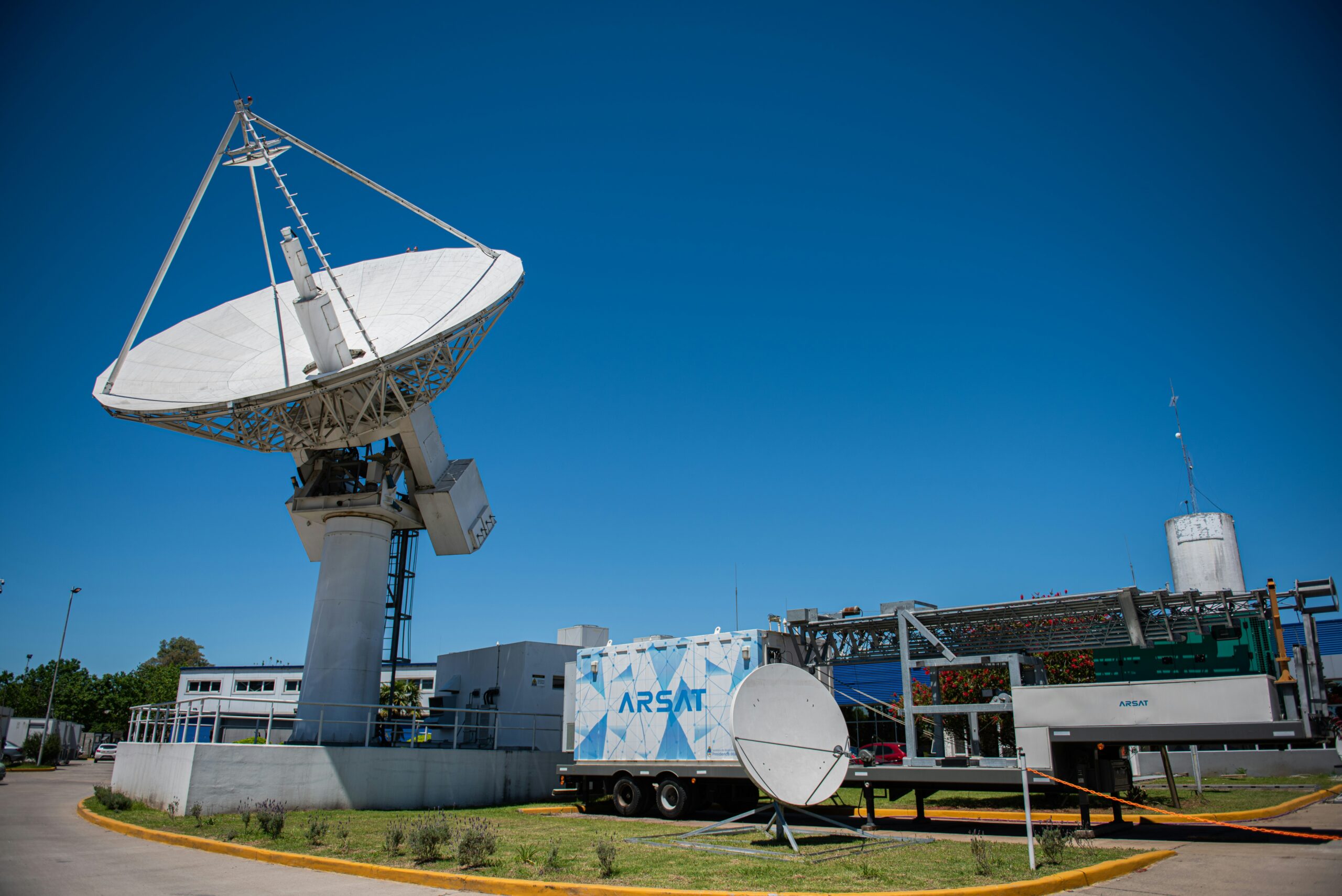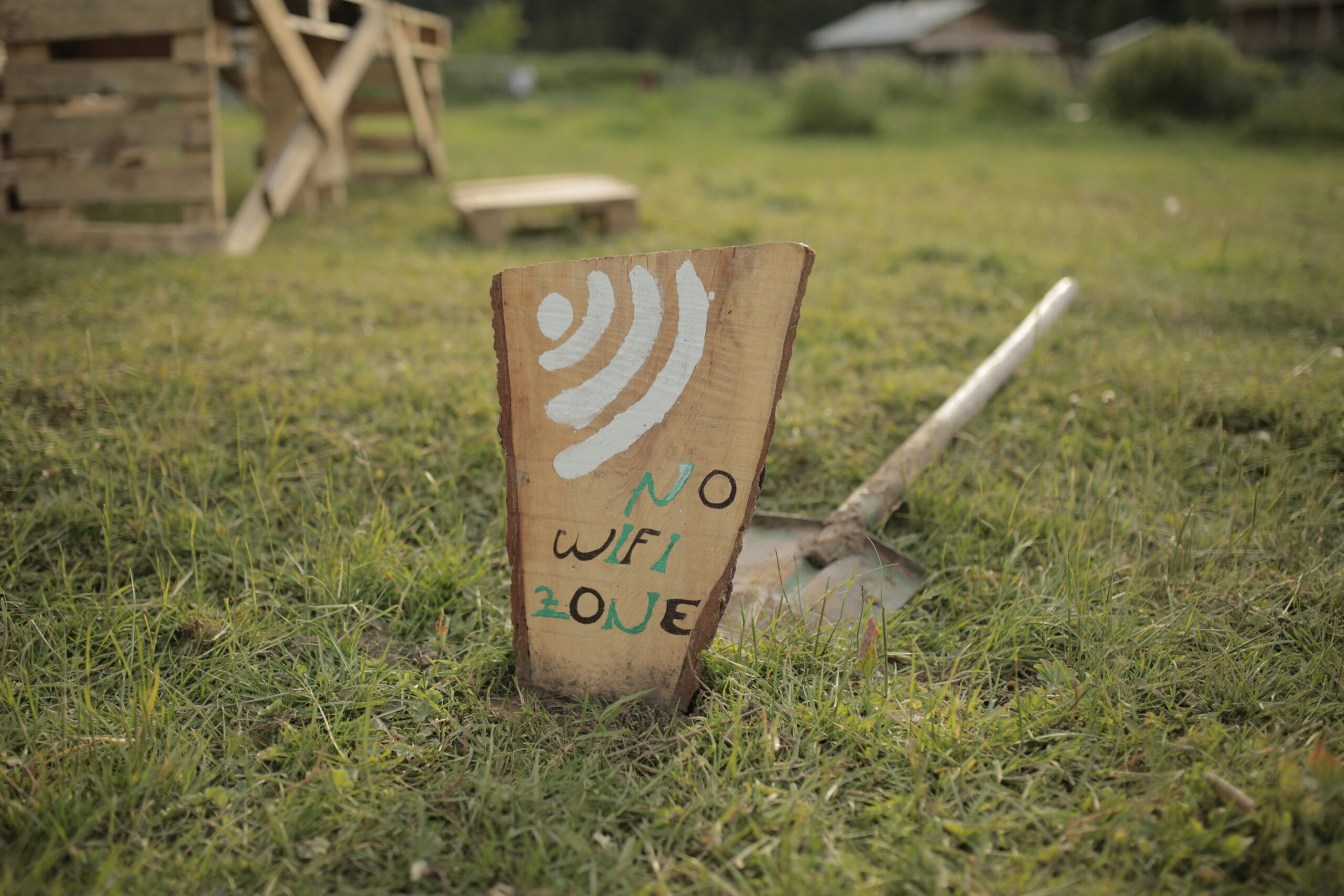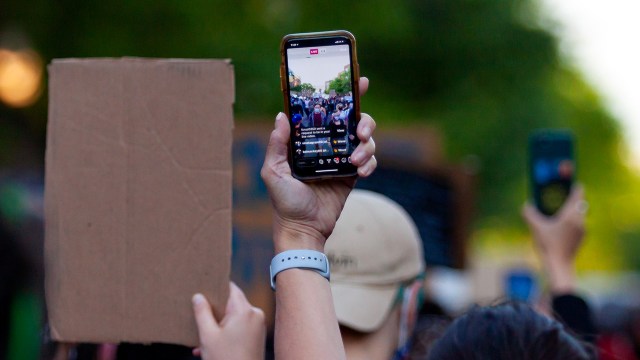
Social media platforms are essential for political and social activists. However whilst maximum American citizens imagine those platforms are an efficient instrument for elevating consciousness and growing sustained actions, majorities additionally imagine they’re a distraction and lull other folks into believing they’re creating a distinction after they’re no longer, in step with a brand new Pew Analysis Heart survey.
Total, eight-in-ten American citizens say social media platforms are very (31%) or quite (49%) efficient for elevating public consciousness about political or social problems, in step with the survey of U.S. adults performed July 13-19. A identical percentage (77%) believes those platforms are a minimum of quite efficient for growing sustained social actions.
Smaller stocks – regardless that nonetheless majorities – say social media are a minimum of quite efficient in getting elected officers to be aware of problems (65%), influencing coverage choices (63%) or converting other folks’s minds about political or social problems (58%).
Pew Analysis Heart performed this find out about to know the way American citizens take into accounts the effectiveness of social media as a device for social and political activism, exchange and engagement. For this research, we surveyed 10,211 U.S. adults from July 13 to 19, 2020. Everybody who took section is a member of the Heart’s American Developments Panel (ATP), an internet survey panel this is recruited via nationwide, random sampling of residential addresses. This fashion just about all U.S. adults have a possibility of variety. The survey is weighted to be consultant of the U.S. grownup inhabitants by way of gender, race, ethnicity, partisan association, schooling and different classes. Learn extra concerning the ATP’s method.
Listed here are the questions used for this document, together with responses, and its method.
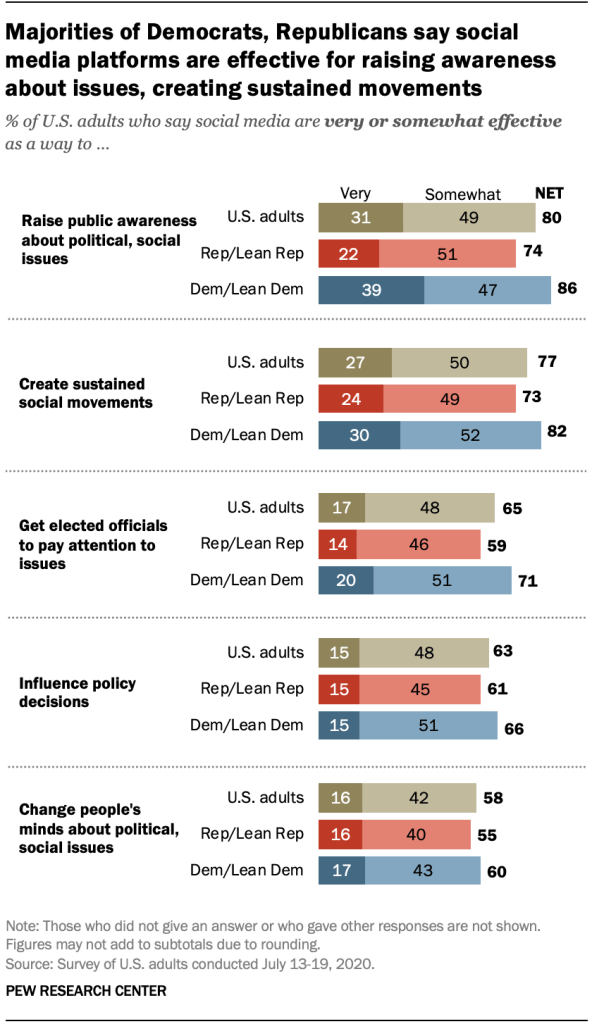
Throughout political events, extra describe those platforms as efficient moderately than useless in the case of reaching those targets. Nonetheless, there are some partisan variations.
Democrats and independents who lean Democratic are much more likely than Republicans and Republican leaners to mention social media websites are a minimum of quite efficient in an effort to elevate public consciousness about political or social problems (86% vs. 74%), create sustained social actions (82% vs. 73%) and get elected officers to be aware of problems (71% vs. 59%). Partisan gaps are extra modest in the case of those platforms’ effectiveness at influencing coverage or converting other folks’s minds.
Democrats additionally stand out as seeing social media platforms as very efficient for elevating consciousness: 39% of Democrats say social media are very efficient at this, when compared with 22% of Republicans.
Similar: 55% of U.S. social media customers say they’re ‘wiped out’ by way of political posts and discussions
Whilst more youthful American citizens are much more likely than their older opposite numbers to make use of some social media platforms, there are few age-related variations in perspectives of those websites’ effectiveness for political engagement – and celebration variations persist even amongst more youthful adults for some targets. As an example, 87% of Democrats ages 18 to 29 say social media websites are a minimum of quite efficient for elevating consciousness, when compared with 76% of Republicans in the similar age workforce. Democrats ages 18 to 29 also are much more likely than their Republican opposite numbers to mention those websites are a minimum of quite efficient at growing sustained social actions (84% vs. 74%) and getting elected officers to be aware of problems (72% vs. 60%).
Main as much as the presidential election, social media platforms have performed a task in elevating consciousness about vote casting problems, spreading details about the presidential applicants and permitting customers to have interaction in on-line activism and campaigning. But if requested about social media’s broader affect on political discourse, there are some indicators that American citizens suppose those platforms may have each certain and unwanted side effects.
At the extra certain aspect, about two-thirds of American citizens say the statements “social media spotlight essential problems that may no longer get a large number of consideration in a different way” (65%) and “social media assist give a voice to underrepresented teams” (64%) describe social media very or quite smartly. Part of American citizens additionally say the observation “social media enable you grasp robust other folks answerable for their movements” describes those platforms a minimum of quite smartly.
However even higher stocks of the general public suppose those platforms are distractions and that individuals is also enticing in “slacktivism” – a time period critics have used to explain activism on-line. More or less eight-in-ten American citizens (79%) say the observation “social media distract other folks from problems which might be really essential” describes social media very or quite smartly, whilst a identical percentage (76%) say the similar concerning the observation “social media make other folks suppose they’re creating a distinction after they in reality aren’t.”
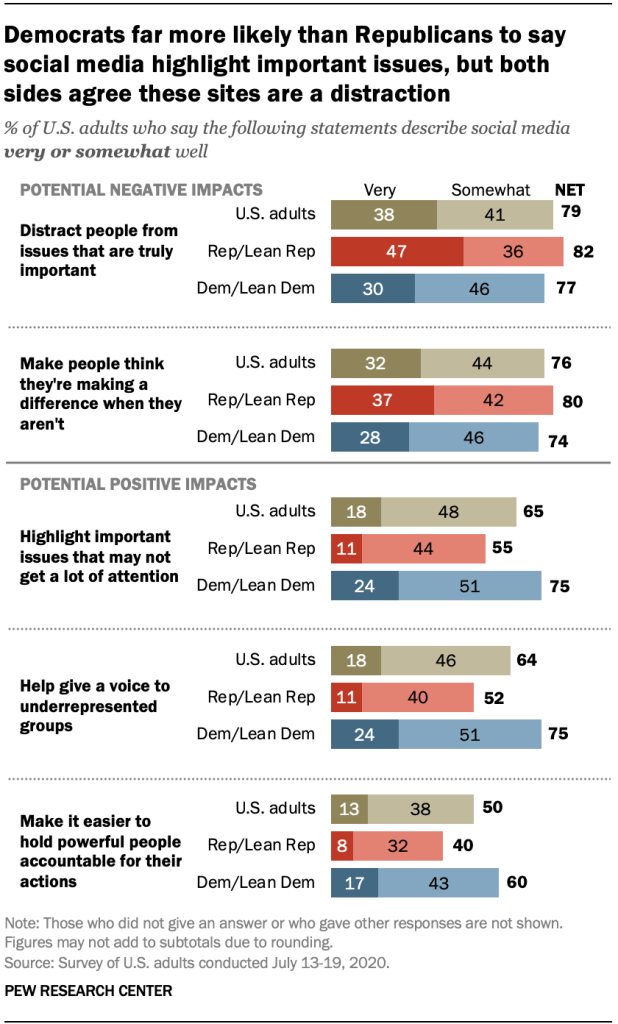
Democrats are much more likely than Republicans to peer certain affects of social media. For example, three-quarters of Democrats say the observation “social media spotlight essential problems that won’t get a large number of consideration in a different way” describes those platforms a minimum of quite smartly, when compared with 55% of Republicans. Democrats also are much more likely than Republicans to mention those platforms assist give a voice to underrepresented teams (75% vs. 52%) and enable you grasp robust other folks answerable for their movements (60% vs. 40%).
Through comparability, there may be extra partisan settlement in the case of some unfavourable sides of the usage of social media platforms for political engagement. Then again, Republicans are somewhat much more likely than Democrats to imagine that social media distract other folks from problems which might be really essential (82% vs. 77%) or make other folks suppose they’re creating a distinction after they in reality aren’t (80% vs. 74%).
More youthful American citizens generally tend to have a extra certain outlook concerning the societal affect of social media. However as with political engagement, partisan variations nonetheless exist inside the youngest age workforce. For example, 70% of Democrats ages 18 to 29 say social media enable you grasp robust other folks answerable for their movements, when compared with 49% of Republicans in the similar age workforce. Younger Democrats also are much more likely than their GOP opposite numbers to mention social media assist give a voice to underrepresented teams (82% vs. 63%) and spotlight essential problems that may no longer in a different way get consideration (79% vs. 64%).
American citizens’ perspectives on a few of these problems are statistically unchanged since 2018, the closing time the Heart requested those questions. As an example, there was no notable exchange in other folks’s perspectives about social media serving to to offer a voice to underrepresented teams, highlighting essential problems and distracting other folks from essential problems.
Nonetheless, there was modest exchange in the case of the belief that social media enable you grasp robust other folks answerable for their movements. Part of American citizens now say this, down from 56% in 2018. On the similar time, there was an uptick within the percentage of American citizens who say social media platforms are making other folks suppose they’re creating a distinction after they in reality aren’t, from 71% in 2018 to 76% within the new survey.
A few of these adjustments persist when taking a look at partisan association. The percentage of Republicans who say social media enable you grasp robust other folks answerable for their movements has dropped from 51% in 2018 to 40% nowadays, whilst perspectives are unchanged amongst Democrats. In the meantime, Democrats have turn out to be moderately much more likely to mention social media make other folks suppose they’re creating a distinction after they in reality aren’t (+7 share issues), whilst Republican perspectives are extra constant throughout years.
Be aware: This is a part of a sequence of weblog posts main as much as the 2020 presidential election that explores the function of social media in politics nowadays. Listed here are the questions used for this document, together with responses, and its method.

Supply Through https://www.pewresearch.org/short-reads/2020/09/09/americans-think-social-media-can-help-build-movements-but-can-also-be-a-distraction/
